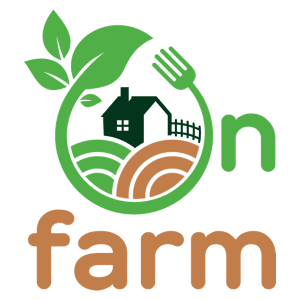The agricultural industry is one of the main sectors producing greenhouse gasses. This is why ON-FARM’s main priority is to raising awareness on the importance of the environment and the fight against climate change. Its main objective is to support those sustainable solutions for agricultural production that contribute to reducing and curbing the effects of climate change as we experience them today.
First, we chose to create pathways to upskilling, improve accessibility and increase acceptance of adult education. We aspire to develop the basic skills of people who want to start their own value-added processing activities for agricultural products and to include “farm to fork” strategies in their daily work. Farm production and sale are solutions that support the creation of short food supply chains, characterized by short physical distance or the involvement of few intermediaries between producers and consumers.
The implementation of “stable SFSCs” has shown to have a lower environmental impact and also contributes in the climate change fight. For this reason, “Environment” and “combating climate change” have been chosen as the project top priorities. We believe that acquiring competences on “SFSC” and its benefits, as well as having the skills to start growing agricultural products with added value (such as bio/organic production, original agricultural products, seasonal products,agricultural products with cultural heritage value), is crucial for the establishment of sustainable production links between farmers, producers and their clients. These skills are called green skills, they are those knowledge, skills, values and attitudes necessary to live, develop and support a sustainable and efficient society in the use of resources.
For European agriculture, training its farmers in green skills is crucial, since the continued use of unsustainable forms of production will inevitably lead to the loss of natural resources and accelerate the devastating effects of climate change. The need to transition towards more sustainable modes of production and consumption from an environmental point of view has become an imperative, both for developed and developing countries. This priority is vital as, despite the obvious demand, there is currently a lack of learning materials on this subject.
The main objectives of the project are to educate small, medium-sized farmers and relevant personnel in the agricultural production sector on the most innovative ways to initiate sustainable on-farm food processing, such as implementing on-farm sale and being included in the “SFSC”. The first and second priorities are interrelated and complementary to each other. Agriculture itself is a complex area, in nature, everything is related. We plan and carry out agricultural projects with this mindset for work with the interconnected nature of agricultural solutions.
Finally, as a third priority, we chose “Addressing digital transformation by building digital readiness, resilience and capacity.” Generalizing digitization is one of the main challenges of the 21st century. Farmers and agriculture itself are undergoing a slow process of transformation towards the digital century. In particular, European agriculture represents a sector where examples of farms with high-tech robotic solutions can be found alongside farmers struggling to use basic digital tools. While focusing on the development of “SFSCs” and supporting on-farm production, we intend to develop digital educational tools for target groups that enable them to gain knowledge effectively and efficiently. We also want to offer European farmers digital solutions that they can use themselves to facilitate access to SFSCs and promote their own farm-to-fork solution to customers.
